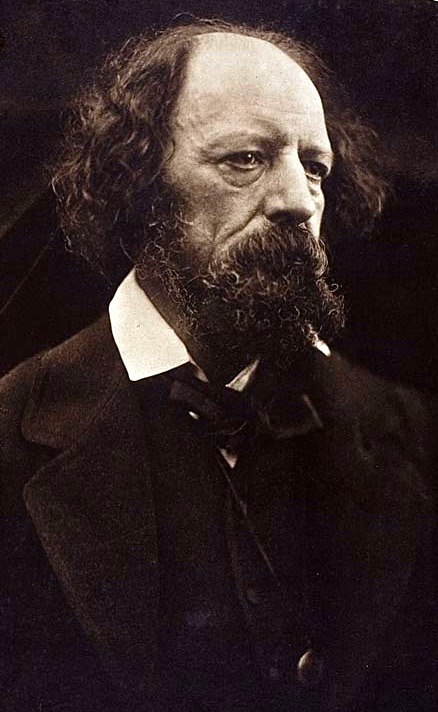Alfred Tennyson najznámejšie citáty
Alfred Tennyson: Citáty v angličtine
Part I, section xxii, stanza 11
Maud; A Monodrama (1855)
St. 1
The Revenge (1878)
" The Golden Year http://home.att.net/%7ETennysonPoetry/tgy.htm", st. 3 (1842)
“That tower of strength
Which stood four-square to all the winds that blew.”
St. IV
Ode on the Death of the Duke of Wellington (1852)
" The Beggar Maid http://home.att.net/%7ETennysonPoetry/tbm.htm", st. 2 (1842)
“Staled by frequence, shrunk by usage into commonest commonplace!”
Stanza 38
Locksley Hall Sixty Years After (1886)
“In our windy world
What's up is faith, what's down is heresy.”
Harold, Act i, Scene 1, reported in Bartlett's Familiar Quotations, 10th ed. (1919)
" Oenone http://www.sc.edu/library/spcoll/britlit/tenn/oenone.html", st. 3 (1832)
“Half light, half shade,
She stood, a sight to make an old man young.”
" The Gardener's Daughter http://whitewolf.newcastle.edu.au/words/authors/T/TennysonAlfred/verse/englishidyls/gardenersdaughter.html", l. 139-140 (1842)
St. I
Ode on the Death of the Duke of Wellington (1852)
St. 5
The Revenge (1878)
“Ours is not to reason why, ours is but to do or die”
Misquote of the lines "Theirs not to reason why, / theirs but to do and die" from The Charge of the Light Brigade
Misattributed
Act iv, scene 1
Queen Mary: A Drama (published 1876)
“A princelier-looking man never stept thro' a prince's hall.”
The Wreck, reported in Bartlett's Familiar Quotations, 10th ed. (1919)
Act i, scene 4
Queen Mary: A Drama (published 1876)
Part I, section xxii, stanza 10
Maud; A Monodrama (1855)
“More black than ash-buds in the front of March.”
The Gardener's Daughter, line 28, from Poems (1842)
“Yet the moonlight is the sunlight and the sun himself will pass.”
Zdroj: Locksley Hall Sixty Years After (1886), Line 182
Was there a man dismay'd?
Not tho' the soldier knew
Some one had blunder'd:
Theirs not to make reply,
Theirs not to reason why,
Theirs but to do and die:
Into the valley of death
Rode the six hundred.
St. 2
The Charge of the Light Brigade (1854)
To which an answer peal'd from that high land,
But in a tongue no man could understand;
And on the glimmering limit far withdrawn
God made Himself an awful rose of dawn.
"The Vision of Sin", sec. 5 (1842)
